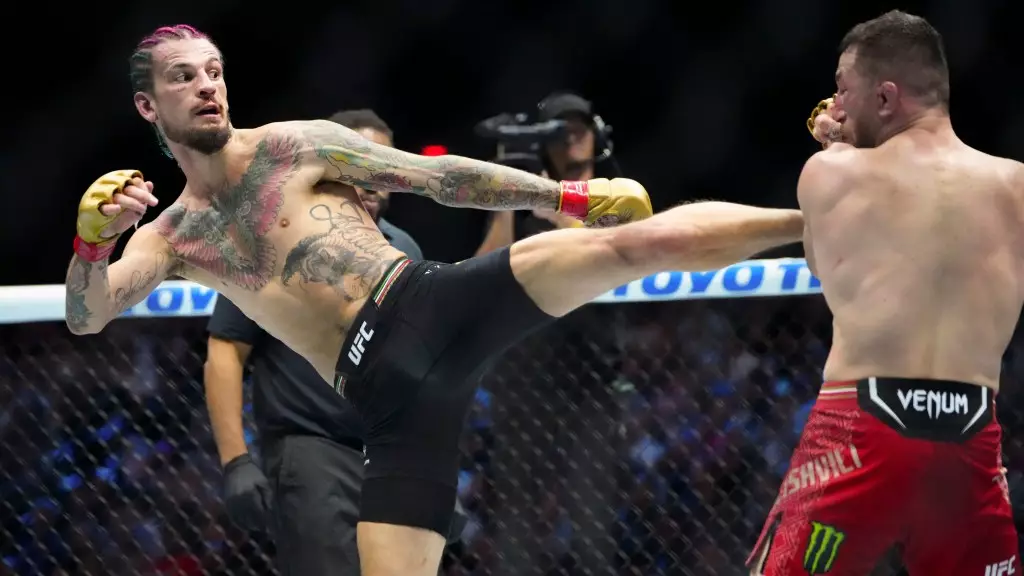In the high-stakes world of mixed martial arts, post-fight analysis can be as intense as the match itself, and few understand this better than Sean O’Malley. The former UFC bantamweight champion made headlines recently after his loss to Merab Dvalishvili at UFC 306. While many expected O’Malley to take his defeat gracefully, he stirred the pot with bold claims that he actually deserved to win the fight. This unexpected turn in narrative raises questions not only about O’Malley’s perception of the bout but also about the nature of competitive sports and scoring.
Initially, O’Malley displayed sportsmanship by admitting to his defeat, but after rewatching the fight, he exhibited a drastic change of heart. He argued that his performance in the first, third, and fifth rounds warranted a decision in his favor. During a candid moment on his YouTube channel, he furiously challenged viewers to analyze the fight without the influence of commentary. His insistence that he had won is particularly intriguing given the judges’ verdict, drawing attention to the disparity often seen between personal belief and official scoring.
His strong emotions spilled into his remarks, where he labeled critics as “little dorks” while urging them to reevaluate the fight. This emotional investment in his own victory highlights how the pressure and stakes of being a professional fighter can distort perceptions. The complex relationship between a fighter’s ego and the realities of their performance often complicates post-fight analysis.
O’Malley’s assertion that his coaching staff and friends concurred with his assessment has led to accusations of surrounding himself with “yes men.” This criticism points to a common pitfall faced by athletes—having a support system that echoes their narratives rather than providing honest feedback. With success often breeding a certain level of hubris, it is crucial for champions to surround themselves with individuals who can challenge them critically, rather than affirm every belief or claim they make.
In his follow-up video, O’Malley maintained his stance but systematically acknowledged the rounds where he felt he fell short—admitting to losing rounds two and four without reservation. Such moments of introspection suggest a conflicted mindset: he is capable of recognizing his shortcomings while still fervently asserting his belief that the overall fight went in his favor.
As O’Malley prepares for hip surgery—a procedure that will sideline him for six months to a year—his future in the octagon remains uncertain. His recent comments reflect not just a fighter’s bravado but also the broader conversation regarding fight scoring and subjective judgment in sports. The upcoming months may offer clarity not only for O’Malley personally but for the UFC community and its fans as they continue to dissect the implications of his claims.
This period of recovery and reflection may present a unique opportunity for O’Malley to reassess his approach to both training and competition. As he navigates this challenging time, it will be essential for him to reconcile his belief in his abilities with the lessons learned from his latest bout, ultimately shaping him into a more robust fighter upon his return.

